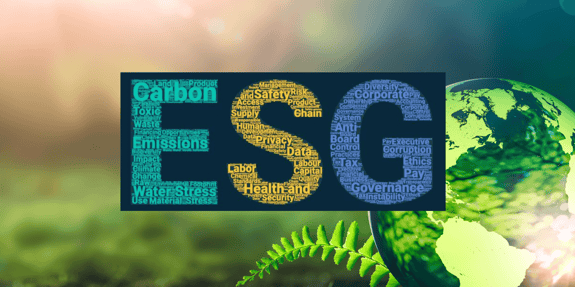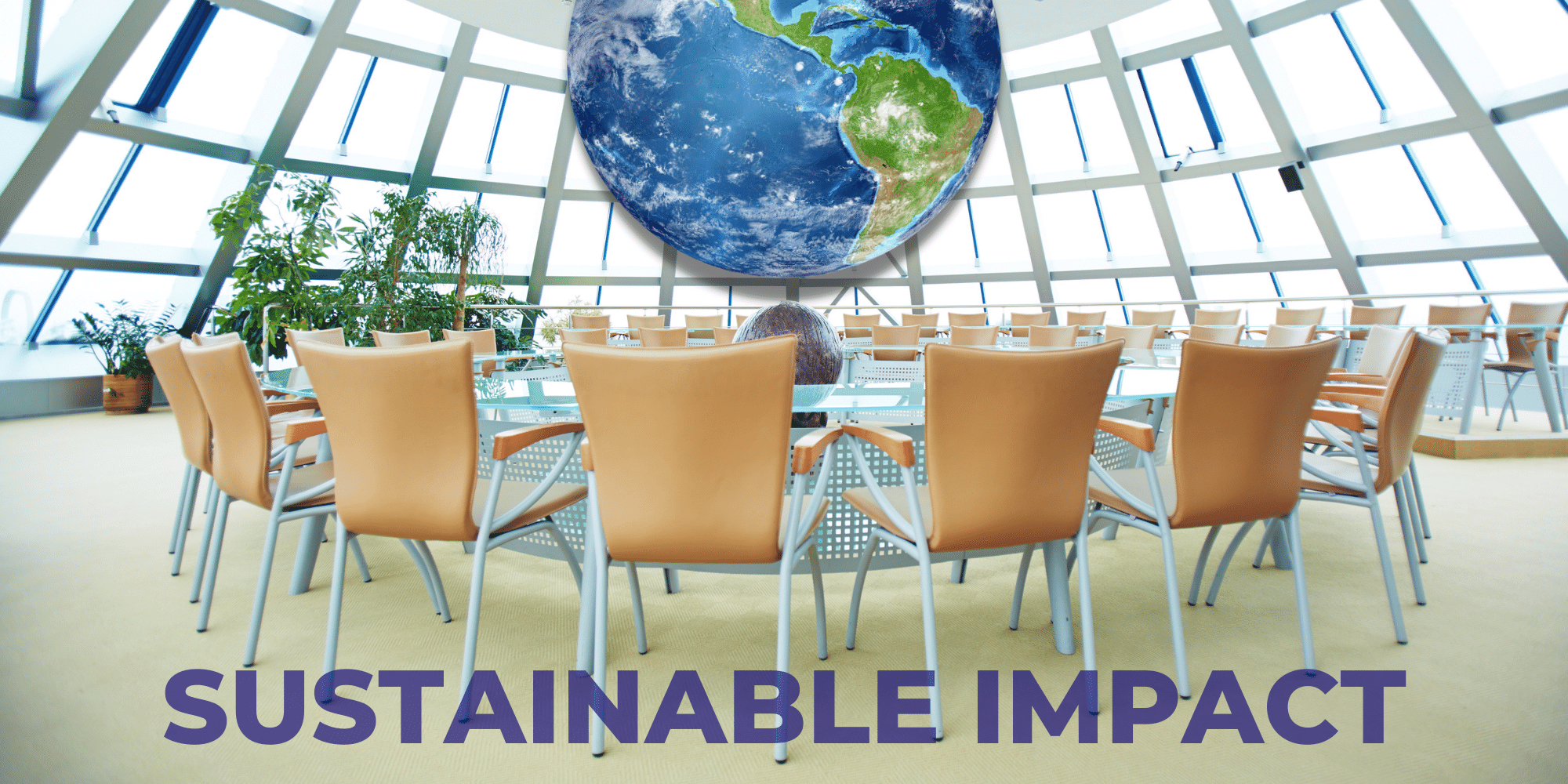This year Resonance began hosting a series of sustainability leaders across sectors to discuss some of the most common pressing challenges and pain-points they are facing during a time of collective and transformative change.
Our most recent gathering came right after Climate Week, a program of core events hosted by The Climate Group, a non-profit organization aimed at achieving a world of net zero carbon emissions by 2050. Held in September, Climate Week nearly always coincides with the United Nations General Assembly meeting at the United Nations Headquarters in Manhattan, and includes an array of side events hosted by non-governmental organizations, coalitions, corporations, and foundations.
Resonance founder and Chief Innovation Officer (CIO) Steve Schmida kicked off the discussion by asking participants to reflect on how they were processing Climate Week, including not only key takeaways but also the ways in which discussions and presentations contextualized their current initiatives and strategy around sustainability moving into 2023.
Themes Centered On Whether We Are Making Progress, And If Not; How Do We Move Forward?
In this Insights, we highlight this conversation around the theme of “Progress?”, followed by two additional themes that dominated our roundtable agenda. We touch on them as conversation starters that set the stage for what we anticipate are deeper Insights to come as members of this exchange explore establishing break-out groups and other opportunities to collaborate.
1. Same Messages; Similar Strategies And Models...Is This Really Progress?
Many of our roundtable participants attended Climate Week in person this year following pandemic protocols that restricted in-person engagement. They described participation as overwhelming, exhilarating, and inspiring, yet equally contemplative with a dash of apprehension. The latter is especially true when it came to gauging whether the collective “we” are making progress in terms of climate change and sustainability.
On that, the first response seemed to generate not only a lot of head nods but very robust conversation.
“What strikes me about climate change is that it is still the same things, largely. Maybe we will have to capture and talk about them differently, but are we really making any progress?”
One roundtable participant noted that although the speakers were impressive, (“a great group with great credentials,”) “…it did feel like we were hearing the same things again.” In fact, they noted, they struggled with how to articulate three new key takeaways from the event, as did their team.
Some Climate Week speakers explicitly stated they were reiterating the same messages intentionally to underscore how important it is to keep moving.
“So, then I found myself energized to make things happen, because if we can’t make it happen, who will?”
Others affirmed their initial feelings of having not attained much ‘progress,’ if based mostly on repetitive messaging, was also followed by some relief, as one participant noted:
I find it somewhat refreshing there isn’t a lot of ‘new’ – new initiatives, new statements, new positions, new stances, because I feel like the human tendency is to embrace the notion that we must have something new…a new method, a new collective action. I feel like then we are digging ourselves in a hole.”
Take BTI and its new guidance, for example, the participant continued. “As BTI is ratcheting up the level of complexity, it is becoming more difficult to reach the masses of companies and then getting the masses of companies moving.”
Many in the group agreed that although there is talk about ‘progress’ when leading companies continue to advance goals and initiatives, they believe all companies need to be doing the work.
“We are struggling with this, still. Every time we reach what we are trying to accomplish, the goal line keeps moving,” stated one participant.
Essentially, many companies feel like they are trying to catch up to the pace-setters.
It became obvious given the tenor of the collective roundtable that there was a mixture of hesitation and urgency regarding perceptions of scalable progress, particularly around pending rules applied to Scope and expansions in ESG.
This is demonstrated in the ways in which companies are examining risks and opportunities under the TCFT framework as a measure of practice.
But Climate Week also came with a renewed sense of agency that sustainability leaders should be at the forefront of change and more proactive in shaping roadmaps, rather than merely reacting to external entity (often detached from the realities of business) edicts and prescriptions of what “impact” should look like.
2. How Can Sustainability Leaders Pro-Actively Frame And Drive ESG?
“ESG” as an overarching directive continues to be central to sustainability leader responsibilities and initiatives and simultaneously keeps them up at night.
One roundtable participant followed the ESG track rather than the general Climate Week events organized around the plenary. They were struck that for the first time the private sector forum, the one official forum for businesses to go into the chamber, was held off the UN campus.
“I felt like business was on the side of a conversation that we worked really hard for a decade to bring business in to. Business was not at the center of any of the UN dialogue that was taking place. I felt that divide.”
This valued insight sparked a very meaningful dialogue centered on how sustainability leaders are central to meeting benchmarks, facilitating change management, and driving impact within organizations and across supply and value chains, but are often left out of external lever discussions.
Noted one participant about a perceived distancing of business in these broader, collective, and critical discussions:
What is now being called “ESG” has in some ways split our community into the ESG people, (whatever that is), the sustainability people, and the philanthropy people, but it is in actuality all part of the same. You know, it's all it's all a lever, a set of levers, that we should be using in the round and it's almost like our community has been divided even further.”
This division, participants noted, had much to do with the fact that ESG as an umbrella conceptualization is not always a congenial, collaborative place under which everyone can sit. Some found ESG to be exclusionary of the business perspective in that the way ESG is being configured, and as a result, is not necessarily organized along the lines in which companies are being measured.
“I think we all know that it's sort of an investment construct that we've now been forced to adopt.”
There was some contemplation whether ESG had become a perceptually “woke” label developed by people and entities far removed from those responsible for implementation within organizations. Participants suggested that as a result, ESG may be contributing to the mere spinning of wheels at tremendous expense and lost opportunity costs rather than yield authentic, sustainable impact.
This possibility was even more pronounced in discussions of ESG frameworks as it relates to reporting and disclosure, including the involvement of the SEC in climate/Scope, and the inevitable friction over what might be a priority topic or priority for strategic action versus what's financially material (important) to the company.
Learn What is ESG?
It appeared that leaders felt companies and their teams had reached yet another crossroads under these complex circumstances, and that external framework requirements, although altruistic, may have several unintended consequences. These include:
- Stagnation or even a backtracking of hard-earned sustainability achievement to date as financial, accounting, and regulatory arms in companies try to sort it all out including examining risks;
- The decision at high levels of the company to withhold information related to progress if it isn’t specifically required in reporting, out of fear companies may be opening themselves up to unanticipated and possibly unnecessary scrutiny down the road or future penalization; and
- The lessening of company appetites to set ambitious goals if the supporting climate becomes more rigorously regulated rather than supportive of voluntary and collective efforts that might yield greater impact.
Regardless of what the umbrella or wrapper is called – be it ESG, CSR, or sustainability -- it appears over the course of these roundtable discussions this year, and in side conversations among sustainability leaders at Climate Week, sustainability leaders are looking for opportunities to be more directly involved.

This means more involvement in both determining materiality within their organizations around sustainability, and in influencing the broader, collective frameworks that are driving the efforts for which they are ultimately responsible.
Roundtable participants agreed there is still far more discussion and ideation on the “how to make this happen” to be had.
3. How Can Sustainability Leaders Create As Much Momentum For The “S” As The “E?”
This third overarching theme of discussion bridged both earlier themes of “progress(?)” and greater agency internally and externally. Specifically, how might sustainability leaders as part of exploring and preparing for ‘just transitions,’ create as much momentum for social impact initiatives as those designed to deliver environmental impact?
Participants agreed that goals aligned with delineated environmental challenges (as opposed to wicked problems like climate change) are likely easier commitment wins. Companies often address these types of challenges first, particularly at a facility level, because if companies have the money and resources to do it, it’s ultimately quantifiable.
Learn The 10 Characteristics of "Wicked Problems"
But how do sustainability leaders position social issues as either integrative of environmental challenges or levers for environmental progress? That is a far more complicated question.
One participant shared how their team focused on the ways in which they were centering discussions in their organization on the social, or “S” as part of the broader ESG conversation, particularly with leadership.
“Essentially, our messaging focused on the fact that if people don’t have their basic needs met, it’s less likely there will be discussions about sustainability or a focus on resilience and plans and transitions. Basic human needs must be met before we can enter into meaningful dialogue on the goals and initiatives we need to advance.”
This led to discussion of ways to integrate the “S” and “E” for greater impact.
Another participant offered as a practical example their efforts to examine hot spots of high plastic use along the supply chain. Through in-depth analysis of ways to achieve reductions in plastics to transition out of fossil-fuel-based production (the “E”), they have to be attentive to the ways in which reduction efforts will likely impact negatively those local economies that have emerged around plastic picking (the “S”).
In this case, it is impossible to address the former without attentiveness to the latter. Thus, framing impact stories in a way that resonate with stakeholders, an important component of change management, is then critical when trying to garner buy-in for initiatives in the realm of "S."
One leader described what was working effectively in their company – an active and engaged 'Disclosure Working Group.'
“We have folks from accounting. We have folks from legal sustainability and a number of other representatives from within. I think we’ve procured the right legal team who came in with a lot of skepticism, but over time are now partners and in alignment with our Investor Relations team. We’ve built the level of trust we need to examine together the SEC piece, or in decarbonizing shipping transportation downstream, for example, a big portion of our Scope emissions.”
Several participants see their roles in 2023, particularly in preparation of COP27 slated for November 6-18, 2022 in Sharm El Sheikh, Egypt, as one of doing a better job of integrating the S into the E.
Framed another way, there is a growing imperative on how to integrate people into the planet conversations and approaches.
“When we are looking at our COP 27 agenda and thinking about the Global South and a 'just transition,' we are very aware that chief environmental scientists remind us regularly that the planet would be just fine, if not better if people were not here. In fact, the planet is not the problem. It is the people who are going to experience the impacts when the planet is slowly no longer hospitable to life.”
These are complex challenges in which the social, “S,” and environmental, “E,” are both integrative and mutually-reinforcing.
This theme continued, but transitioned to solutions. Participants expressed a desire explore the ways in which sustainability leaders can be more proactive in shaping agendas that both recognize what is materially possible and drive greater sustainable impact than what external decisionmakers and frameworks are requiring.
Sustainable Impact Roundtable Pursuits In 2023
To that end, our Resonance-hosted Sustainable Impact Roundtable series has identified specific and tangible pursuits this group of sustainability leaders would like to examine in 2023 through collective learning and in collaboration, when acceptable.
This includes the following:
- Assessment of opportunities for greater cross-sector collaboration.
- Establishment of a working group focused on commitments to plastics reduction.
- Creation of a forum or process for collecting best practices and strategies for a 'Just Transition' toolbox ideally tailored for companies with limited resources.
- Exploration of potential avenues for sustainability leaders to have a greater voice in shaping ESG and/or umbrella frameworks.
Resonance is both honored and excited to be able to work with this esteemed gathering of leaders on their Sustainable Impact challenges.
To that end, we plan to serve as an ongoing facilitator of these and other potential pursuits identified by the members of this group in the coming year.
Do You Have an Interest in This Roundtable Effort? This is Your Invitation.
As we are always eager to hear from others who share similar challenges, we invite you share your valued insights on any of the themes we have discussed here (or others) in this important and dynamic conversation on Sustainable Impact.
Or join us in a future roundtable or working group. Simply express your interest by answering the Call to Action, below.


